Letter-sound association Letter Recognition Worksheets for Ages 3-5
8 filtered results
-
From - To
Introduce your young learners to the magic of letters with our engaging Letter-Sound Association and Letter Recognition Worksheets, specifically designed for ages 3-5. These interactive resources help children build a solid foundation in literacy by connecting sounds to letters through fun activities. Young learners will practice identifying letters, recognizing their sounds, and strengthening essential pre-reading skills in a playful manner. Our worksheets incorporate colorful illustrations and enjoyable exercises that captivate children's attention, making learning both effective and enjoyable. Get ready for your little ones to embark on an exciting alphabet adventure and cultivate their love for reading from an early age!


Letter E Coloring Sheet
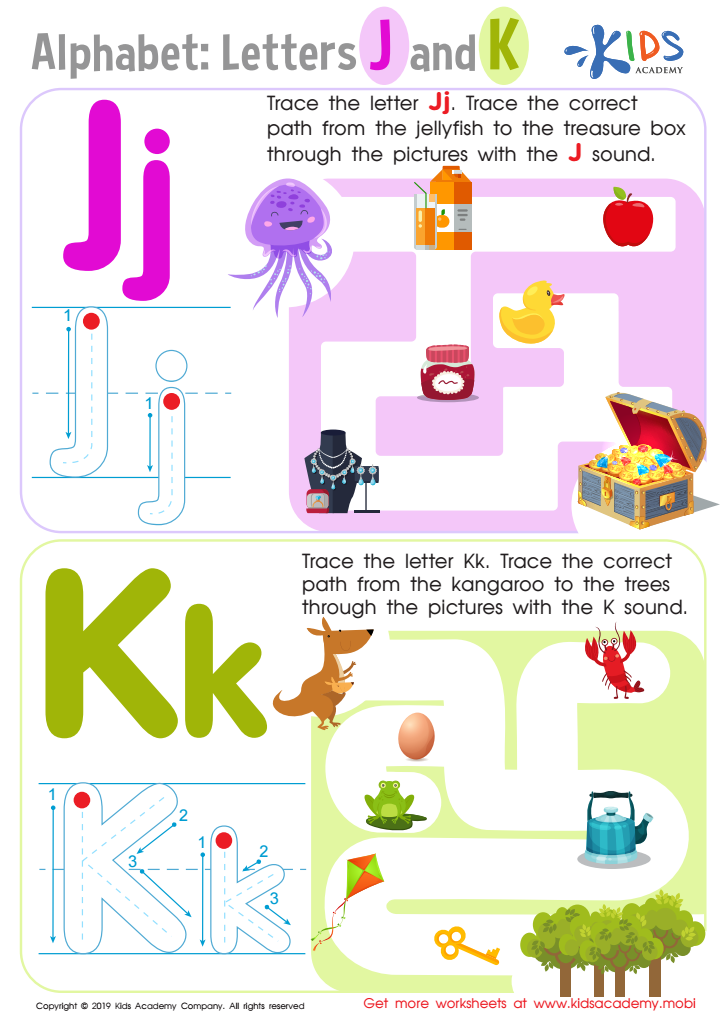

Letters J and K Tracing Worksheet
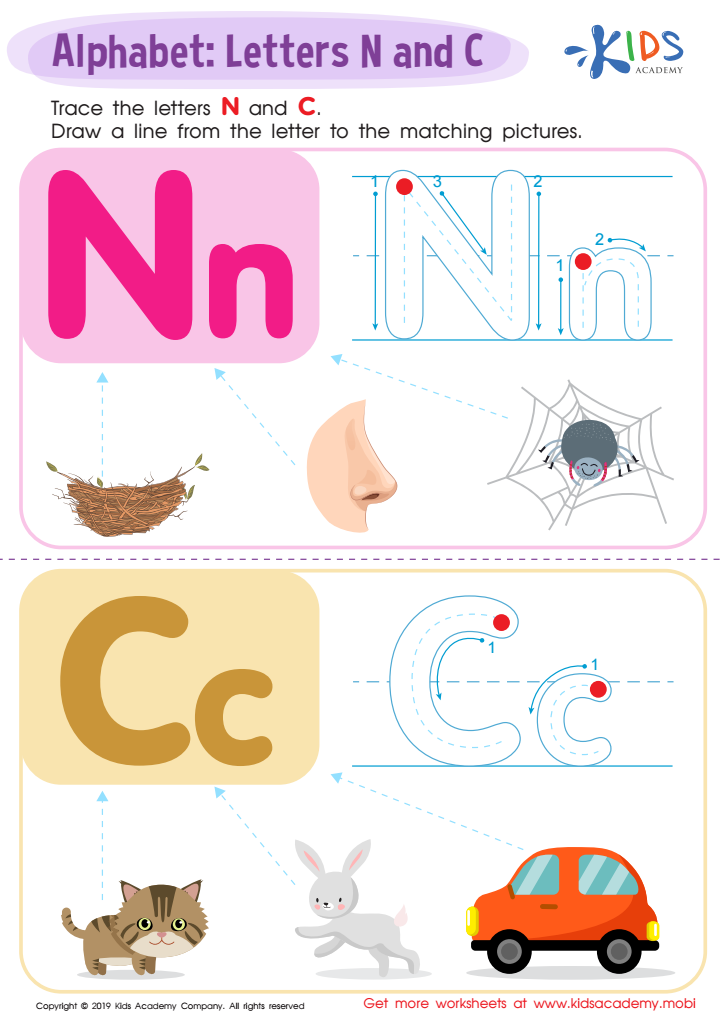

Letter N and C Tracing Worksheet
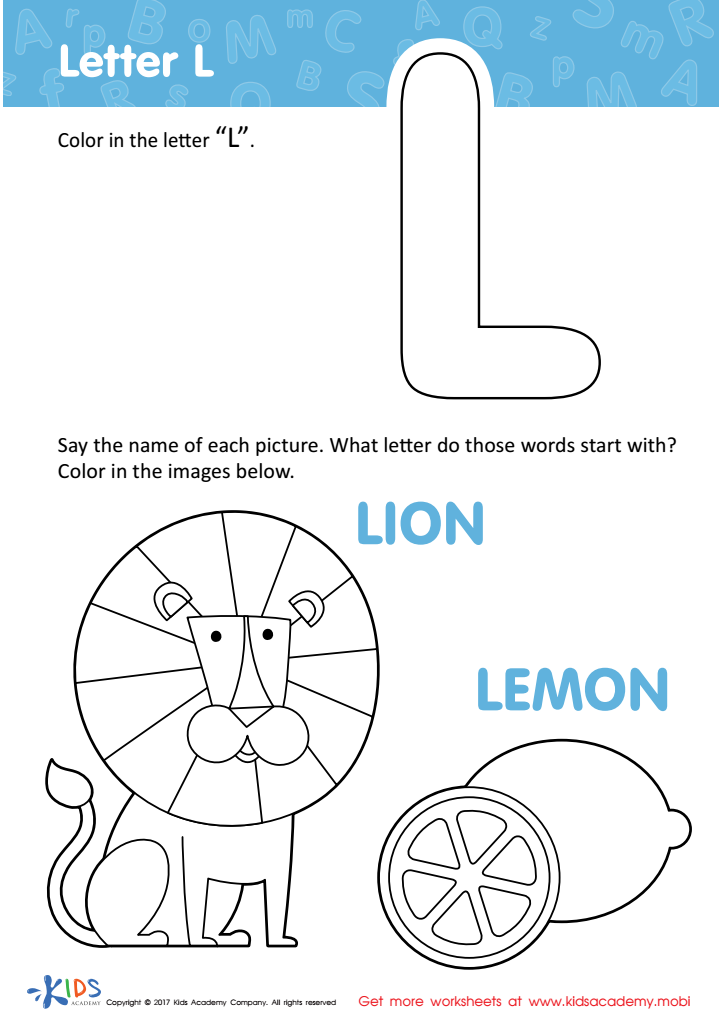

Letter L Coloring Sheet
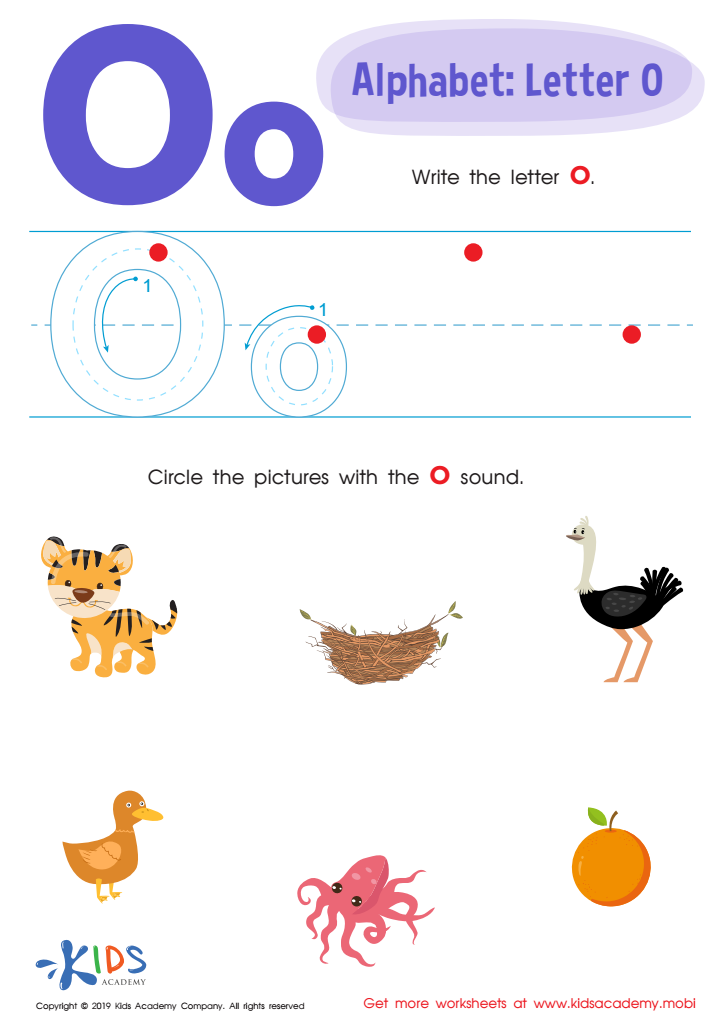

Letter O Tracing Worksheet
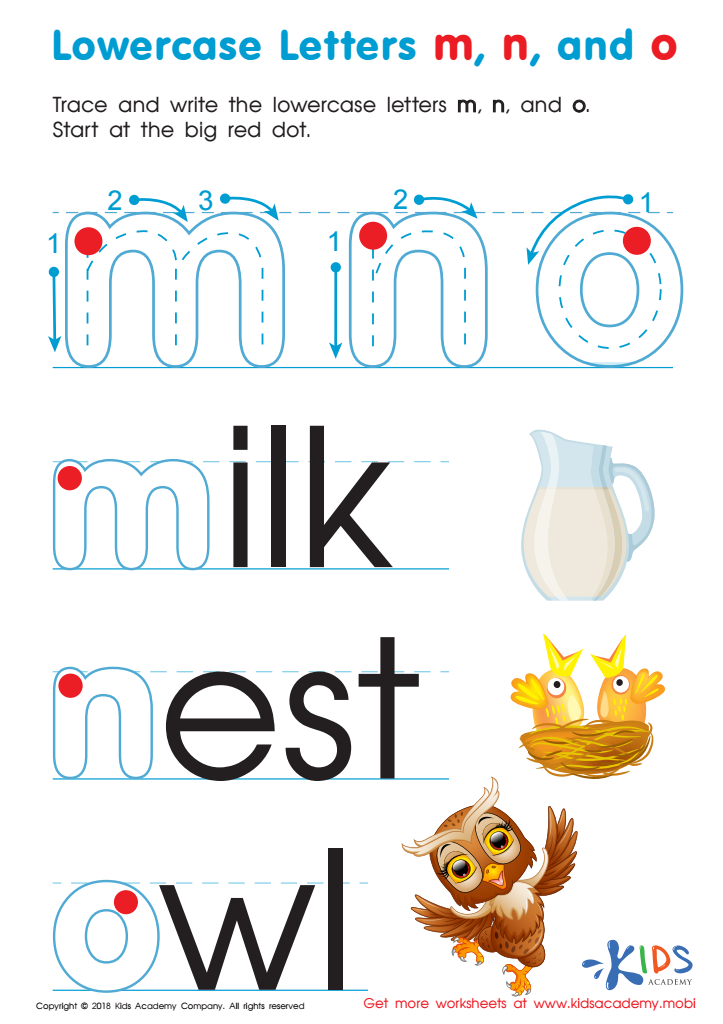

Lowercase Letters m n o Worksheet
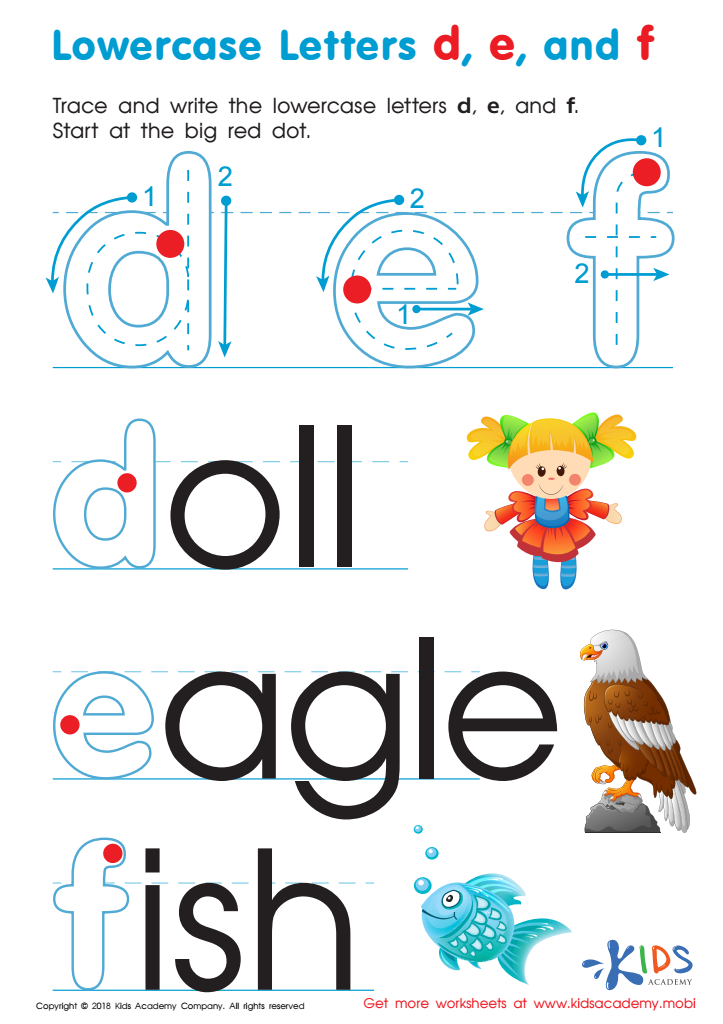

Lowercase Letters d e f Worksheet
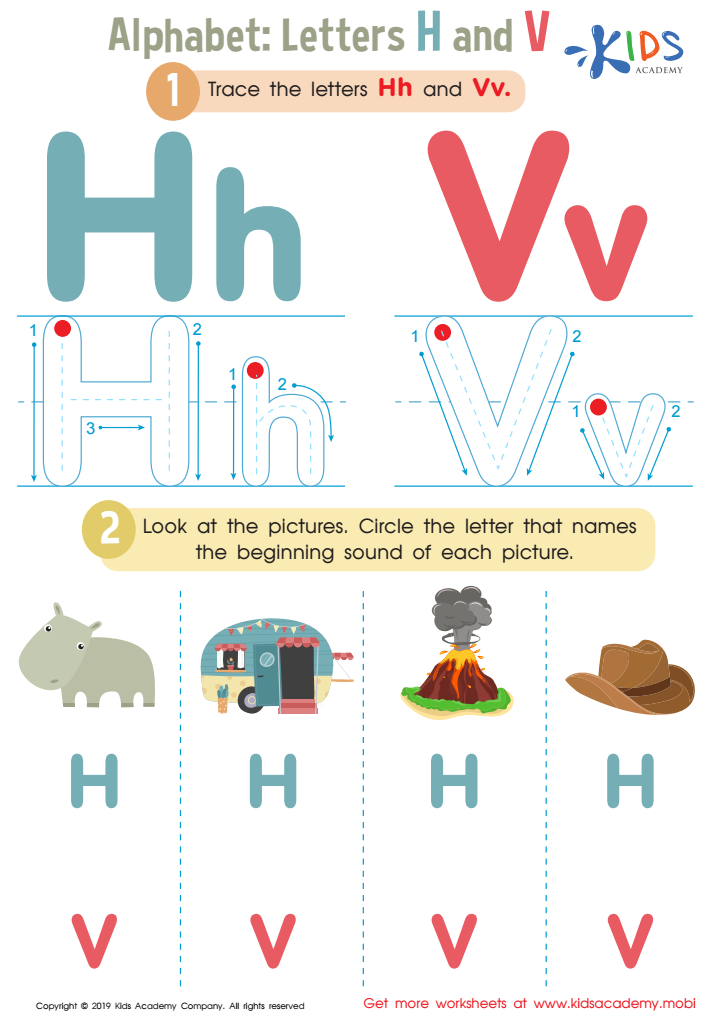

Letters H and V Tracing Worksheet
Letter-sound association and letter recognition are crucial components of early literacy development for children aged 3-5. During this vital stage, children begin to make connections between the spoken language and its written form. Understanding how letters correspond to sounds lays the foundation for reading and writing skills, which are essential for success in school and beyond.
Parents and teachers should care about these skills because they are fundamental to language acquisition and literacy achievement. Mastery of letter recognition helps children identify letters in print, enabling them to recognize their names, familiar words, and eventually learn to read. Simultaneously, letter-sound association equips them with the tools to decode and blend sounds, fostering essential reading skills.
Early intervention in these areas can lead to a love for reading and learning, as well as improved confidence. Building these skills also supports overall cognitive development, enhancing memory and critical thinking. By actively promoting letter recognition and sound associations through engaging activities, stories, and songs, parents and teachers can create a rich literacy environment that prepares children for academic success and instills a lifelong love of reading. Ignoring these skills can set back literacy development, impacting future educational opportunities.

 Assign to My Students
Assign to My Students




















